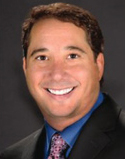Gotta have it…Sooo $$$ expensive but terrified to use it: Property Insurance
Most board of directors know they must have property insurance. Most associations buy property insurance. However, most communities don’t know what their “policy” covers. Even though property insurance is purchased to insure and protect us in the event of damage, most boards (and most people) are terrified of making even a single insurance claim. There is a fear that the insurance company will triple our premiums or even drop us from coverage. These are myths our insurance companies want us all to believe.
This article addresses fact from fiction and makes a complicated process a little easier to understand. It is important to ensure your association receives all the money it is legally entitled to receive when something unexpected happens to your association’s property and your association is left with the bill.
Will Our Rates Increase? Will My Condominium or HOA be Dropped from Coverage if We Make an Insurance Claim?
My clients over the last 28 years have repeatedly told me they are petrified of making an insurance claim for fear of rate increases or being dropped. Condominium and HOA insurance claims are different. First, in the event of a named storm (the 2017 hurricane season starts again next month!) insurance companies cannot discriminate against you, raising premiums or dropping coverage, for making an insurance claim. Rates are determined on geography and other factors, not whether you made a claim to have your roof replaced! Further, if they drop you, they are pulling out of the area whether you made a claim or not.
It is purposeful that insurance companies want you to believe they determine your car insurance premiums the same way as your condominium, HOA, townhome, or cooperative. It’s not! Don’t fear repercussions from insurance companies. It’s an urban myth. Florida law protects us from unfair insurance practices.
An insurance company does not determine your rates based upon a single claim. Instead, an insurance company takes into consideration numerous factors in determining rates: age of building, type of construction, cost to rebuild, proximity to the ocean, location within the state, etc. All of these factors come into play, not just whether you made a claim. Further, in the event of a hurricane or when a state of emergency is declared additional community association property insurance protections are mandated.
Keep in mind that a property insurance policy is purchased to provide a sense of security to the insured. In the event of a covered claim, the insurance company must pay for the resulting damages. If a community has property insurance, the members of the association should absolutely not bear the cost to repair property damage which should be covered by insurance. If you are unsure whether the property damage may be covered under a property insurance policy, you should consider contacting an experienced first-party property lawyer.
What is Covered under a Property Insurance Policy?
A community association property insurance policy (“policy” is a friendly way to say insurance contract”) typically covers damages as a result of unexpected events. The coverage available under property insurance policies depends upon the language in your insurance contract. Mostly, association insurance contracts are divided into two categories: (1) named perils and (2) all-risks.
As the name indicates, a “named perils” policy provides coverage only for those perils or causes of loss listed in the policy. Examples of covered perils include fire, lightning, windstorm, hail, and smoke. In contrast to a “named perils” policy, an “all-risks” policy covers all perils or causes of loss not specifically excluded or limited by the policy. Do you know what type of policy your community has?
“First-party” property claims.
You may have heard others use the term “first-party” property claim. This simply refers to a claim by an insured for property damage under its property insurance policy. Common insurance claims include damages caused by hurricanes, tornadoes, rain, high winds, hail, flood, storm surges, fire, water bursts, and many others.
Do I have a “first-party” property claim?
For the most part, your community will know or learn when they have property damage. For instance, in October last year, many condominium associations on the east coast were smashed by Hurricane Matthew. My personal house was significantly damaged. I made an insurance claim. They paid, my premiums were not raised, and my coverage was not dropped.
There may also be damage that was unknown for some period of time; that does not mean insurance will not cover those damages. An experienced first-party property damage lawyer or public adjuster are best suited to conduct an investigation of the damages, determine the covered cause of the damages, and present the claim to the insurance company. Please do not simply rely upon the insurance company’s “Independent Adjuster”, they are almost exclusively hired by the insurance company. “Independent.” No way. Please get a second opinion on the amount and cause of your damages.
Whose insurance applies?
Another issue an association faces when there is property damage is whose property insurance policy applies? This is where association’s declarations come into play. The declarations dictate what coverage the association must buy versus what an owner should have.
For instance, a condominium’s declaration may require the association to buy a property insurance policy which covers only the common elements. Common elements include the drywall inside the unit but not the wall coverings (e.g., paint, wallpaper, etc.). So, if there is a covered loss which causes damage to the interior of a unit, the covered damages under the condominium’s property insurance policy will differ from a unit-owner’s property policy.
Delay, denial, or underpayment – an Insurance company’s “Bad Faith”.
Insurance companies want to be perceived as having your interests as paramount. “You’re in good hands with Allstate.” “Nationwide is on your side.” “Like a good neighbor, State Farm is there.”
Yet, the reality is insurance companies are businesses, and all businesses are concerned about profits. As such, insurance companies may instruct their adjusters to deny claims even though the claim may be covered, pay as little as possible for covered claims, or even deny paying claims all together.
The Florida Legislature has recognized this conflict of interest between insurance companies and insureds and has set forth standards for an insurance company to act in “good faith.” For instance, an insurance company must adequately and timely adjust a claim and must settle claims in “good faith.”
Instead of quickly resolving a “first-party” claim, all too often insurance companies delay their investigation only to later issue a denial or underpay the claim. These “bad faith” tactics are what the Florida Legislature sought to abolish, but insurance companies still act this way in the name of corporate greed and profits. Please consult with your lawyer or obtain a qualified independent second opinion to protecting the interests of your community.
Fearing your insurance rates will be tripled or dropped is simply not true. Buckle up, batten down the hatches, and have your community association lawyer on speed dial.
 Alan Garfinkel has counseled homeowners, townhomes, condominium associations, and individuals throughout Florida from his same Central Florida office for 25 years. He continues to passionately work for those living in and working for community associations. Garfinkel received the highest ethics rating (AV) for more than a dozen consecutive years. Attorney peer review ratings provide objective grades based on confidential evaluations by attorneys and judges measuring a lawyer’s ethical standards and legal ability. Garfinkel Whynot only represents community associations, not big corporations like developers, banks, and insurance companies that can develop conflicts with communities. For more information, visit www.MyGWLaw.com.
Alan Garfinkel has counseled homeowners, townhomes, condominium associations, and individuals throughout Florida from his same Central Florida office for 25 years. He continues to passionately work for those living in and working for community associations. Garfinkel received the highest ethics rating (AV) for more than a dozen consecutive years. Attorney peer review ratings provide objective grades based on confidential evaluations by attorneys and judges measuring a lawyer’s ethical standards and legal ability. Garfinkel Whynot only represents community associations, not big corporations like developers, banks, and insurance companies that can develop conflicts with communities. For more information, visit www.MyGWLaw.com.



 Ryan D. Poliakoff is a Partner of Backer Aboud Poliakoff & Foelster and serves as general counsel to condominiums, homeowners associations, and country clubs throughout South Florida. He is the co-author of New Neighborhoods—The Consumer’s Guide to Condominium, Co-Op, and HOA Living. In addition to representing associations, he is a frequent contributor at seminars and workshops for attorneys and board members, and he has written hundreds of articles for magazines and newspapers throughout the United States. He can be reached at
Ryan D. Poliakoff is a Partner of Backer Aboud Poliakoff & Foelster and serves as general counsel to condominiums, homeowners associations, and country clubs throughout South Florida. He is the co-author of New Neighborhoods—The Consumer’s Guide to Condominium, Co-Op, and HOA Living. In addition to representing associations, he is a frequent contributor at seminars and workshops for attorneys and board members, and he has written hundreds of articles for magazines and newspapers throughout the United States. He can be reached at 
